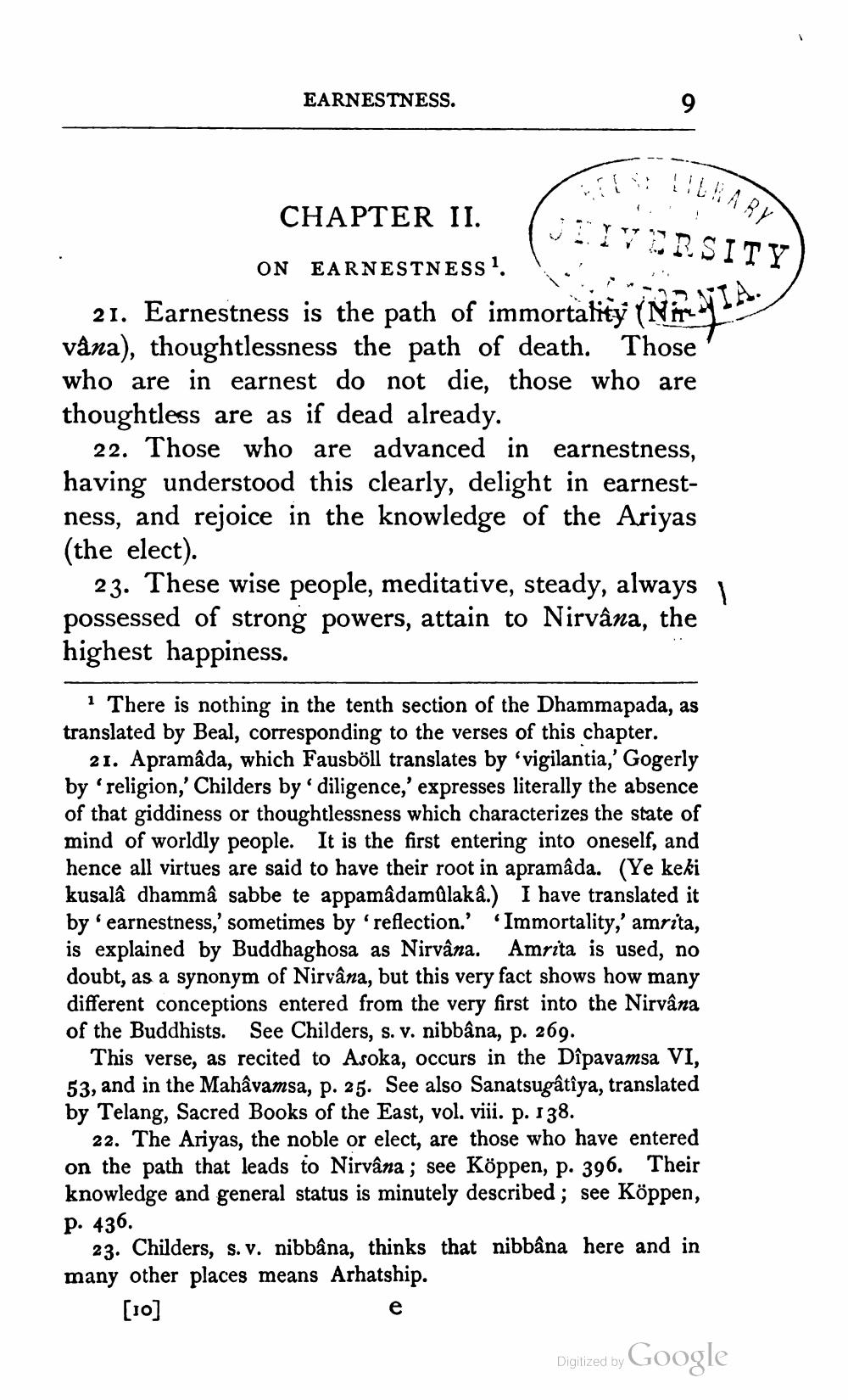________________
EARNESTNESS.
CHAPTER II.
9
RELSE LIDHARY
JEIVERSITY
ON EARNESTNESS1.
21. Earnestness is the path of immortality (Ni vâna), thoughtlessness the path of death. Those who are in earnest do not die, those who are thoughtless are as if dead already.
22. Those who are advanced in earnestness, having understood this clearly, delight in earnestness, and rejoice in the knowledge of the Ariyas (the elect).
23. These wise people, meditative, steady, always \ possessed of strong powers, attain to Nirvâna, the highest happiness.
1 There is nothing in the tenth section of the Dhammapada, as translated by Beal, corresponding to the verses of this chapter.
21. Apramâda, which Fausböll translates by 'vigilantia,' Gogerly by 'religion,' Childers by diligence,' expresses literally the absence of that giddiness or thoughtlessness which characterizes the state of mind of worldly people. It is the first entering into oneself, and hence all virtues are said to have their root in apramâda. (Ye keki kusalâ dhammâ sabbe te appamâdamûlakâ.) I have translated it by' earnestness,' sometimes by 'reflection.' 'Immortality,' amrita, is explained by Buddhaghosa as Nirvana. Amrita is used, no doubt, as a synonym of Nirvâna, but this very fact shows how many different conceptions entered from the very first into the Nirvâna of the Buddhists. See Childers, s. v. nibbâna, p. 269.
This verse, as recited to Asoka, occurs in the Dîpavamsa VI, 53, and in the Mahâvamsa, p. 25. See also Sanatsugâtîya, translated by Telang, Sacred Books of the East, vol. viii. p. 138.
22. The Ariyas, the noble or elect, are those who have entered on the path that leads to Nirvâna; see Köppen, p. 396. Their knowledge and general status is minutely described; see Köppen, P. 436.
23. Childers, s. v. nibbâna, thinks that nibbâna here and in many other places means Arhatship.
[10]
e
Digitized by Google




